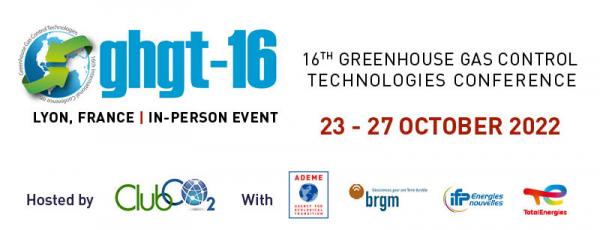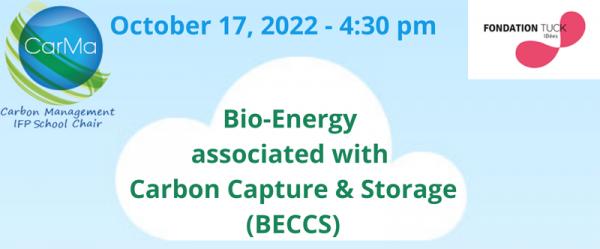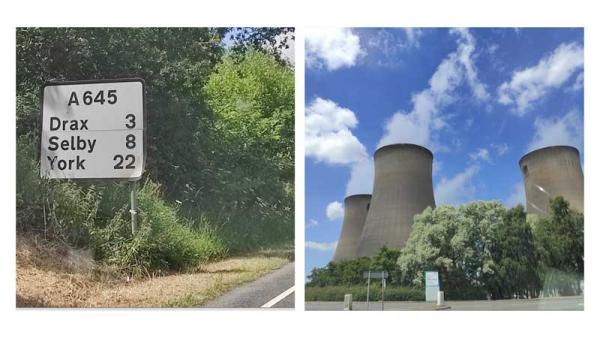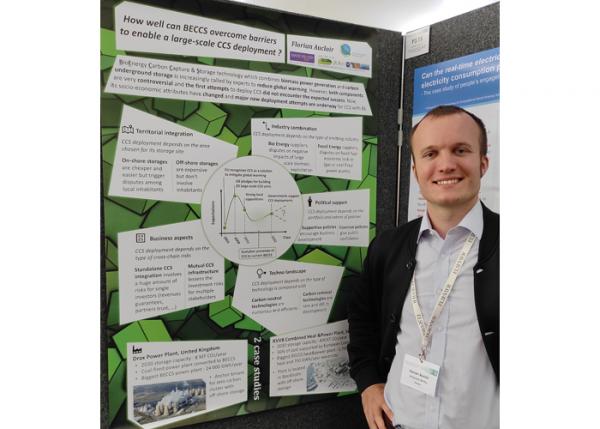PhD Student

Florian Auclair has joined the research center for energetical and environmental transitions of Pau University in February 2021 to start his PhD work on the societal impacts of BECCS (Bio-Energy with Carbon Capture and Storage).
Florian graduated from Mines ParisTech with a Master’s degree in Mining Engineering and from the European Institute of Anthropology with a Licence in Philosophy. Before joining the CarMa chair, Florian worked as a field engineer for Orano, a French mining company in Kazakhstan and as an economist for Total in Moscow, Russia.
Societal issues and possible associated scenarios in the frame
of the deployement of BECCS technologies
|
Image

|
L’acceptabilité sociale des technologies à émissions négatives : Comparaison du déploiement de deux projets BECCS en Suède et en Angleterre |
Id. card:
Project Type: Doctoral project validated by the CarMa Chair steering committee (December 2020)
Duration: 3 years, starting on February 2021
Ideal profile for the candidate: Student with a strong social sciences background, particularly in political sciences, Science and Technology Studies(STS) and associated fields. Students from other fields (sociology, geography, history) are welcome if they can justify previous researches in STS.
Supervisors: Dr. Xavier Arnauld de Sarte (DR 2 CNRS, Université de Pau et des Pays de l'Adour)
Sébastien Chailleux (Maître de conférence, Université de Pau et des Pays de l'Adour)
Background
The National Low Carbon Strategy (SNCB), which commits France to carbon neutrality by 2050, identifies BECCS (Bio-energy with Carbon Capture and Storage) techniques as crucial to meet the objectives set by France: “In the reference scenario [of the SNBC]”, it is thus envisaged that “around ten Mt CO2 of negative emissions could be generated annually thanks to BECCS […] associated with biomass combustion installations (biogas, or solid biomass)”. BECCS technologies combine energy production by biomass (which, in the photosynthesis process, uses CO2 from the atmosphere) with techniques to capture CO2 during the biomass combustion, to both produce energy and store CO2.
The three technological components of BECCS (production of agrofuels, CO2 capture and storage) have reached mature levels of technology development (refer for CCS to the summary proposed by Bui et al., 2018). The technical challenge therefore lies more in the deployment and interlinking of these technologies. Furthermore, beyond these technical issues, the deployment of BECCS is likely to encounter major socio-political and economic difficulties. Indeed, each independent development of the three technologies composing BECCS has experienced significant difficulties, from socio-environmental conflicts to economic models and weak political support. Agrofuels, and more broadly the bioeconomy, are subject to major controversies, linked in particular to land use conflicts (Hermelin and Lagandré, 2009). Producing energy rather than food compromises the food sovereignty of the producing territories and, at a larger scale, affects global food security. Intensive agricultural production has also impacts on soils, generates deforestation and biodiversity losses, and results in deep transformations of farmers’ profiles (Paillard et al., 2010).
CO2 Storage and Capture are also the subject of controversies related to safety issues and environmental impact, to the prospect of turning the underground of territories into landfills, and also to more encompassing criticisms of the industrial model implementing these technologies (Arnauld de Sartre and Chailleux, forthcoming, Chailleux, 2019). These critiques, often stemming from geoengineering technologies opponents (Shepherd et al., 2009), are strengthened by accounts from political science diagnosing a “schism of reality” (Aykut and Dahan, 2014) between the democratic debates held on international climate conferences arenas and the reality of rising GES emissions, inherent to fossil-based development models and dominated by economic interests.
The PhD student will study the issue of acceptability of BECCS technologies, by adopting a prospective approach aiming at anticipating the controversies emerging with their future deployment, even in the absence of actual discernible controversies. To do so, the doctoral thesis will draw from on a theoretical approach framing the acceptability of a technology (Wüstenhagen et al., 2007), particularly in the case of the subsurface (Arnauld de Sartre and Chailleux, 2020b), as the product of three dimensions: its credibility (technological and economic), its governance and political support, and the legitimacy (political and social) from which it benefits. This approach will help grounding the three empirical phases of the PhD.
Scope of work
The PhD student will first deploy a systematized analysis of the controversies linked with each of technologies composing BECCS (agrofuels production, CCS) and with the promises of ecological modernization in climate matters. The methodology will be based on three sources: the scientific literature (research on international bibliography databases), the press (research with the Europresse tool), and the study of debates linked to the implementation of specific projects (for example the French La Mède bio-refinery). Second, these results will pave the way for a typology of the framing strategies (Snow et al., 1986) implemented by social movements opposing these technologies, both in principle and in specific projects. The PhD will outline different discursive tools and repertoires of action such as demonstrations, boycotts, public meetings (Tilly, 2008) and identify the most effective strategies to impose claims against a particular technology in the public arenas. Last, the study of these mobilizations will allow us to develop plausible scenarios for the emergence of controversies challenging BECCS, factoring in the different possible strategic choices made by the stakeholders supporting the technology: how they choose to frame it? to submit it to public democratic debates? and to implement it? leading recommendations regarding these choices.
Framing
In terms of supervision, the thesis will be part of the work of two chairs which conduct research on energy transitions and the subsoil:
• The chair “Territories in energy and environmental transitions – TEEN” (https://www.univ-pau.fr/chaireteen), led by Xavier Arnauld de Sartre, who will be the director of the thesis. The TEEN chair explores the way in which energy transition projects can emerge from and be embedded in local communities. Its governance associates stakeholders involved in the implementation of energy transitions: research institutions (CNRS, U. Pau, the iSite E2S UPPA project) industries (notably Total and the Avenia Pole), developers (Compagnie d'aménagement des Coteaux de Gascogne) and local authorities.
• The chair “Politicization of the subsoil” ((https://www.univ-pau.fr/chaire-polssol), led by Sébastien Chailleux, who will be the co-director of the thesis. This chair analyzes the way in which the use of subsurface for the energy transition provokes a politicization of this environment, forgotten by modernity. The two chairs have six PhD students and two post-docs working on issues related to the submitted project, which guarantees that the doctoral student will be able to work in a team, encouraging synergies. A monthly seminar allows to share empirical analyzes and theoretical developments. The chairs have also set up methodological devices capable of supporting the doctoral student in the collection and analysis of data.
References:
Arnauld de Sartre, X., Chailleux, S., 2020a. L’acceptabilité au prisme du stockage géologique de CO2 – retour sur un débat non émergé, Natures Sciences Sociétés, Soumis.
Arnauld de Sartre, X., Chailleux, S., 2020b. L’incomplète mise en politique du sous-sol français, Natures Sciences Sociétés, Soumis.
Bui, M., Adjiman, C. S., Bardow, A., Anthony, E. J., Boston, A., Brown, S., Fennell, P. S., Fuss, S., Galindo, A., Hackett, L. A., Hallett, J. P., Herzog, H. J., Jackson, G., Kemper, J., Krevor, S., Maitland, G. C., Matuszewski, M., Metcalfe, I. S., Petit, C., Puxty, G., Reimer, J., Reiner, D. M., Rubin, E. S., Scott, S. A., Shah, N., Smit, B., Trusler, J.P. M., Webley, P., Wilcox, J., Mac Dowell, N., 2018. Carbon capture and storage (CCS): the way forward, Energy & Environmental Science, 11, 5, 1062–1176.
Chailleux, S., 2019. Making the subsurface political: How enhanced oil recovery techniques reshaped the energy transition, Environment and Planning C: Politics and Space, SAGE Publications Ltd STM, 2399654419884077.
Paillard, S., Treyer, S., Dorin, B., 2010. Scénarios et défis pour nourrir le monde en 2050, Versailles, Quae.
Shepherd, J., Cox, P., Haigh, J., Keith, D., Launder, B., Mace, G., Mackerron, G., Pyle, J., Rayner, S., Redgwell, C., Watson, A., 2009. Geoengineering the climate: science, governance and uncertainty, London, The Royal Society.
Snow, D. A., Rochford, E. B., Worden, S. K., Benford, R. D., 1986. Frame Alignment Processes, Micromobilization, and Movement Participation, American Sociological Review, 51.
Tilly, C., 2008. Contentious Performances, Cambridge, Cambridge University Press.
Wüstenhagen, R., Wolsink, M., Bürer, M. J., 2007. Social acceptance of renewable energy innovation: An introduction to the concept, Energy Policy, 35, 2683–2691.

CarMa at GHGT16 next October in Lyon, France
The CarMa research team will be present at GHGT16 with up to 4 communications

October 17, 2022 4:30 - 7 pm: CarMa Online Conference at Fondation Tuck
CarMa is pleased to share on its ongoing research activity

CarMa research results presented at the TEcX workshop (September 13, 2022)
Poster: How social and political drivers may impact BECCS deployment? A socio-technical analysis of innovative transition technology

Visit of the DRAX power plant: Bio-Energy towards BECCS
On June 22, 2022, Florian Auclair and Jean-Pierre Deflandre took the opportunity to visit the Drax biomass plant. This plant located in Yorkshire, England, aims to become the first full BECCS installation in Europe.

Energy and Climate Transformations: 3rd International Conference on Energy Research & Social Science (June 22-23, 2022)
Florian Auclair presents his poster "How well can BECCS overcome barriers to enable a large-scale CCS deployment?"




